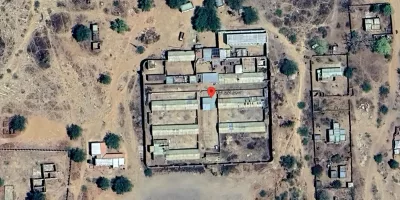The Committee for Justice said that the reality observed on the ground in Egypt 100 days after Egyptian President Abdel Fattah El-Sisi launched the National Human Rights Strategy on September 10, confirms that this strategy is mere ink on paper.
During the first 100-days of the strategy, and in conjunction with the International Human Rights Day, which the world marks on December 10 every year, CFJ’s various teams documented legislative and human rights violations and mass executions in Egypt. Despite the abolition of the state of emergency, on October 25, 2021, it was accompanied by amendments to the laws on fair trial that further undermine its guarantees.
CFJ stated that on October 31, 2021, the Egyptian Parliament approved the government’s proposal to amend some provisions of Law No. 136/2014 regarding the insurance and protection of public and vital facilities, to become a continuous law instead of being limited to only two years. On November 1, 202, parliament approved the amendments to the Anti-Terrorism Law, the most prominent of which was the addition of the text of Article 32, which authorized the president to impose penalties up to rigorous imprisonment for those who violate the measures authorized under Article 53 of the same law.
CFJ also indicated that during that period, the Egyptian judiciary issued on October 25, 2021 a final death sentence against 3 defendants in Case No. 3354 / 2020 Agouza Criminal Emergency State Security, known in the media as the “Al-Mourabitin Cell”. In its first session of November 10, 2021, the Cairo Criminal Court, First Circuit Terrorism, held in Tora, issued a life sentence on several defendants, punishing one with 15 years rigorous imprisonment and 10 years for another. It also sentenced a female defendant to 3 years in prison for joining a terrorist group in Case No. / of 2021 Criminal State Security, known as ISIS El-Zawya El-Hamraa.
During the 100-day period from the announcement of the National Human Rights Strategy in Egypt, the Committee for Justice also documented 1,046 arbitrary arrests in 10 different Egyptian governorates, and 187 cases of enforced disappearance, including 11 people who were forcibly disappeared in detention centers after obtaining a verdict of acquittal from the Emergency State Security Court, and then they were charged in new cases (recycling).
Meanwhile, 53 defendants were subjected to renewed detention (recycling) after being sentenced or after their release, such as the detainees of the Central Security Forces camp in Aswan, who were acquitted and then the security forces transferred them on November 17 from Aswan to the Fifth Settlement in Cairo to the headquarters of the Supreme State Security Prosecution for interrogation in connection with case 2380 / 2021 Supreme State Security, and then they were transferred to the Qanater prison for men, a journey that lasted 72 hours, just two days after they survived the deadly floods in Aswan in November.
The Committee for Justice also documented the death of 10 detainees inside Egyptian detention facilities, during the months of October and November, most of them as a result of health care denial. Among them is the former parliamentarian, Hamdi Hassan, who died inside the notorious Scorpion prison as a result of being denied access to health care for 8 years since his detention in 2013.
CFJ also monitored 17 health care denial violations in at least 8 detention facilities, including critical or critically ill cases, for example the case of Fatima Abdel Rasoul (47 years old), who has been detained since last September pending case 200/2021 State Security. She is deprived of the necessary health care as she suffers from leukemia. The authorities refuse to treat her in a hospital and are determined to keep her in al-Qanater Women’s Prison Hospital.
Regarding ill-treatment and torture in detention facilities, the organization documented several complaints of escalating violations in at least 6 detention facilities, including Liman Minya, Zagazig General Prison, and Tora High Security Prison 992 (known as Scorpion Prison). CFJ also documented the appeal of the detainees’ families in Shebin al-Kom General Prison to save their families from the violations committed against them by the head of the prison’s investigations and the informants, and their hunger strike. CFJ also documented attacks committed by the officers of Wadi el-Natrun Prison 440, on Jordanian prisoner Sami al-Jazra, who was robbed, beaten and arbitrarily placed in solitary disciplinary cells.
CFJ stressed that all of these facts documented during the 100-day period of launching the “National Human Rights Strategy” in Egypt confirm that the terms of this fake strategy have no effect on the ground. Violations continue, and the politicization of the judiciary and the promulgation of oppressive laws to suppress dissenting voices continues unabated, proving that this step was nothing more than a formality by the Egyptian authorities to reduce international pressure on them.
CFJ also called on Egyptian authorities to implement the provisions of the National Human Rights Strategy in a genuine manner, support human rights in Egypt with actions, not words, stop manipulating laws and making them subservient to the service of the political system, safeguard freedoms, improve the atmosphere for political and human rights work in the country, and the immediate release of prisoners of conscience and human rights defenders who are arbitrarily detained.






